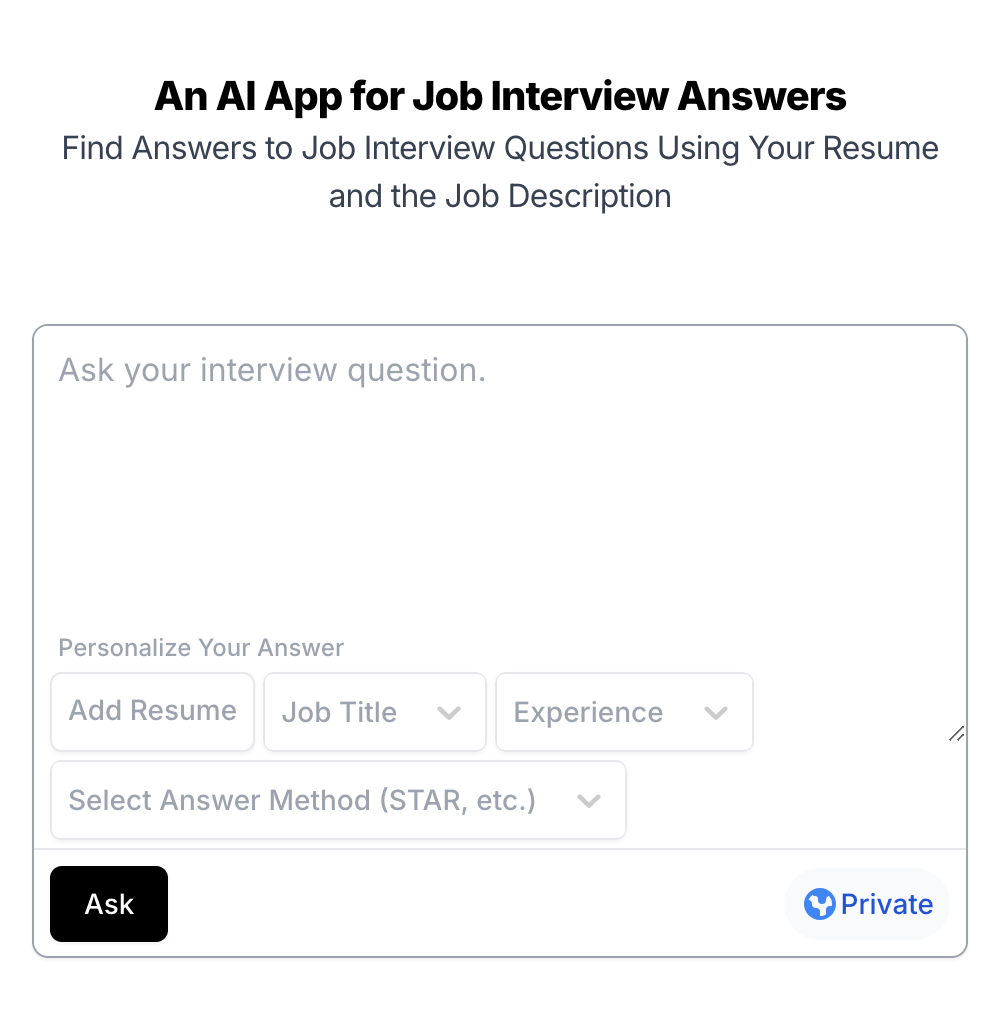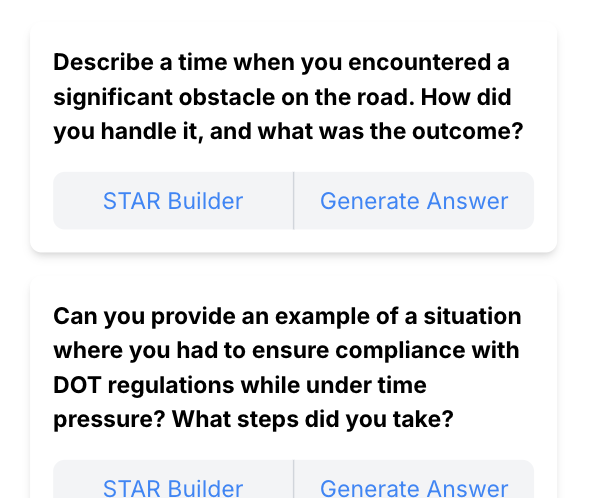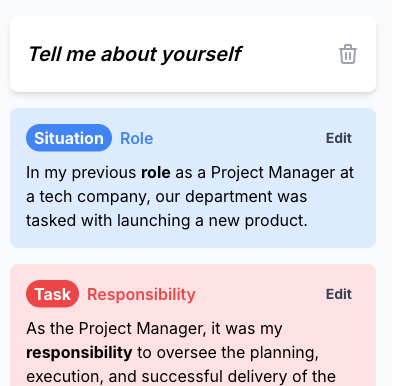
General Interview Questions: What You Need to Know
Fri Aug 23 2024•Author: InterviewPro AI
Table of Contents
- What Are They?
- Common Examples
- Answer Length
- What to Avoid Saying
- Possible Follow-Ups
- More Follow-Up Questions
- When They're Asked
- Who Asks Them
- Why They Matter
- How to Answer Well
- Answer Structure
What Are They?
General interview questions are broad queries about your background, skills, and goals. Employers use them to learn about you and see if you fit the job and company. They help start the conversation and give you a chance to highlight your strengths.
5 Common Examples
- Tell me about yourself.
- Why do you want to work here?
- What are your strengths and weaknesses?
- Where do you see yourself in five years?
- Why should we hire you?
Answer Length
Aim for about 1-2 minutes per answer. This gives you enough time to share relevant details without talking too much. Your answers show who you are, so keep them focused and clear.
What to Avoid Saying
Don't say these things when answering general interview questions:
-
Don't badmouth previous employers Bad example: "My last boss was terrible, so I quit." Why it's bad: This makes you look negative and unprofessional.
-
Don't give overly personal information Bad example: "I'm going through a divorce and really need this job." Why it's bad: This is too personal and might make the interviewer uncomfortable.
-
Don't lie or exaggerate Bad example: "I'm an expert in every programming language." Why it's bad: Lies can be easily discovered and will harm your credibility.
-
Don't give vague answers Bad example: "I'm a hard worker" (without examples) Why it's bad: This doesn't provide concrete information about your skills.
-
Don't focus on salary or benefits Bad example: "I'm mainly interested in the high salary and vacation time." Why it's bad: This suggests you're more interested in perks than the job itself.
-
Don't say you have no weaknesses Bad example: "I don't have any weaknesses." Why it's bad: This shows a lack of self-awareness and ability to improve.
-
Don't give irrelevant information Bad example: "I love collecting stamps" (for a finance job) Why it's bad: This doesn't help the interviewer understand your job-related skills.
Show that you're professional, self-aware, and focused on the job opportunity.
Possible Follow-Ups
After you answer, the interviewer might ask for more details. They could ask about:
-
Specific examples: They might want you to back up your claims with real situations. Example: "Can you give me an example of how you've demonstrated leadership?"
-
Your motivations: They could ask why you made certain choices. Example: "Why did you choose your field of study?"
-
Your future plans: They might ask how this job fits into your career goals. Example: "How does this position align with your long-term career objectives?"
-
Your knowledge of the company: They could test how much you know about them. Example: "What do you know about our company's recent expansion?"
-
Your skills: They might ask how your skills apply to the job. Example: "How would your communication skills benefit our team?"
5 More Follow-Up Questions
- "How do you handle stress and pressure?"
- "What's your biggest professional achievement?"
- "How do you stay updated in your field?"
- "What's your ideal work environment?"
- "How do you handle conflict with coworkers?"
When They're Asked
You'll hear these questions at different stages:
-
Application: Some general questions might be on the job application form. Example: "Why are you interested in this position?"
-
Phone Screening: Basic general questions often come up in initial phone calls. Example: "Can you tell me a bit about your background?"
-
First Interview: This is when you'll get most general questions. Example: "What are your career goals?"
-
Follow-up Interviews: You might get more specific versions of general questions. Example: "How would you apply your leadership skills in this role?"
-
Final Interview: They might revisit some general questions to confirm their impressions. Example: "Now that you know more about the role, why do you think you're the best fit?"
These questions can come up at any time, so be prepared throughout the process.
Who Asks Them
-
HR Representatives: Example: "What are your salary expectations?"
-
Hiring Managers: Example: "How do you prioritize your work?"
-
Department Heads: Example: "How do you see yourself contributing to our team?"
-
Potential Coworkers: Example: "What's your approach to teamwork?"
-
Company Executives: Example: "Where do you see our industry heading in the next five years?"
-
External Recruiters: Example: "What type of work environment do you thrive in?"
Different people might ask similar questions to get various perspectives on you as a candidate.
Why They Matter
These questions help employers understand your personality, work style, and career goals. They use your answers to see if you'd fit well with the job and company culture. Your responses give them a fuller picture of you beyond your resume.
How to Answer Well
- Be honest and authentic
- Use specific examples from your experience
- Show enthusiasm for the job and company
- Connect your answers to the job requirements
- Keep your responses concise and relevant
Answer Structure
Use this plan to organize your thoughts:
- Start with a brief overview: Give a short summary of your point
- Provide an example: Share a specific situation that illustrates your point
- Explain the outcome: Describe what happened as a result
- Connect to the job: Show how this relates to the position you're applying for
General interview questions let you showcase your personality and qualifications. Use them to demonstrate why you're a great fit for the role. Your answers help employers get to know you better, so focus on presenting your best professional self.
Can't find what you're looking for?
Try our AI-Powered Interview Preparation Tools
Prepare for your job interview with our AI tools. Tailored answers, custom questions, and STAR method responses.


